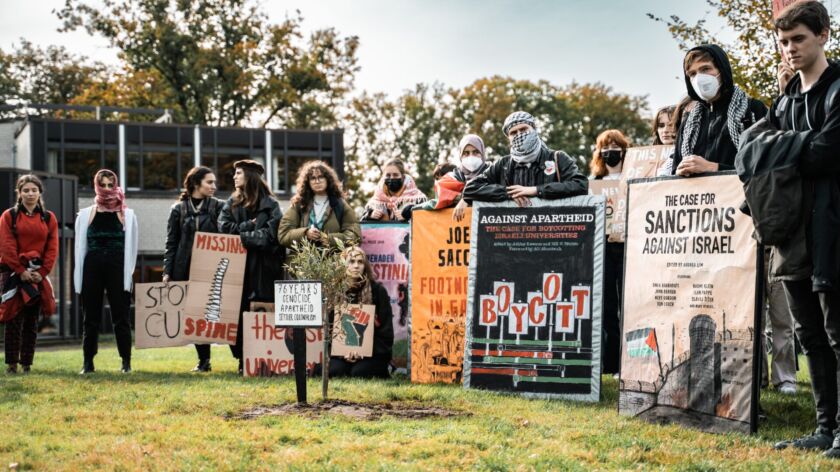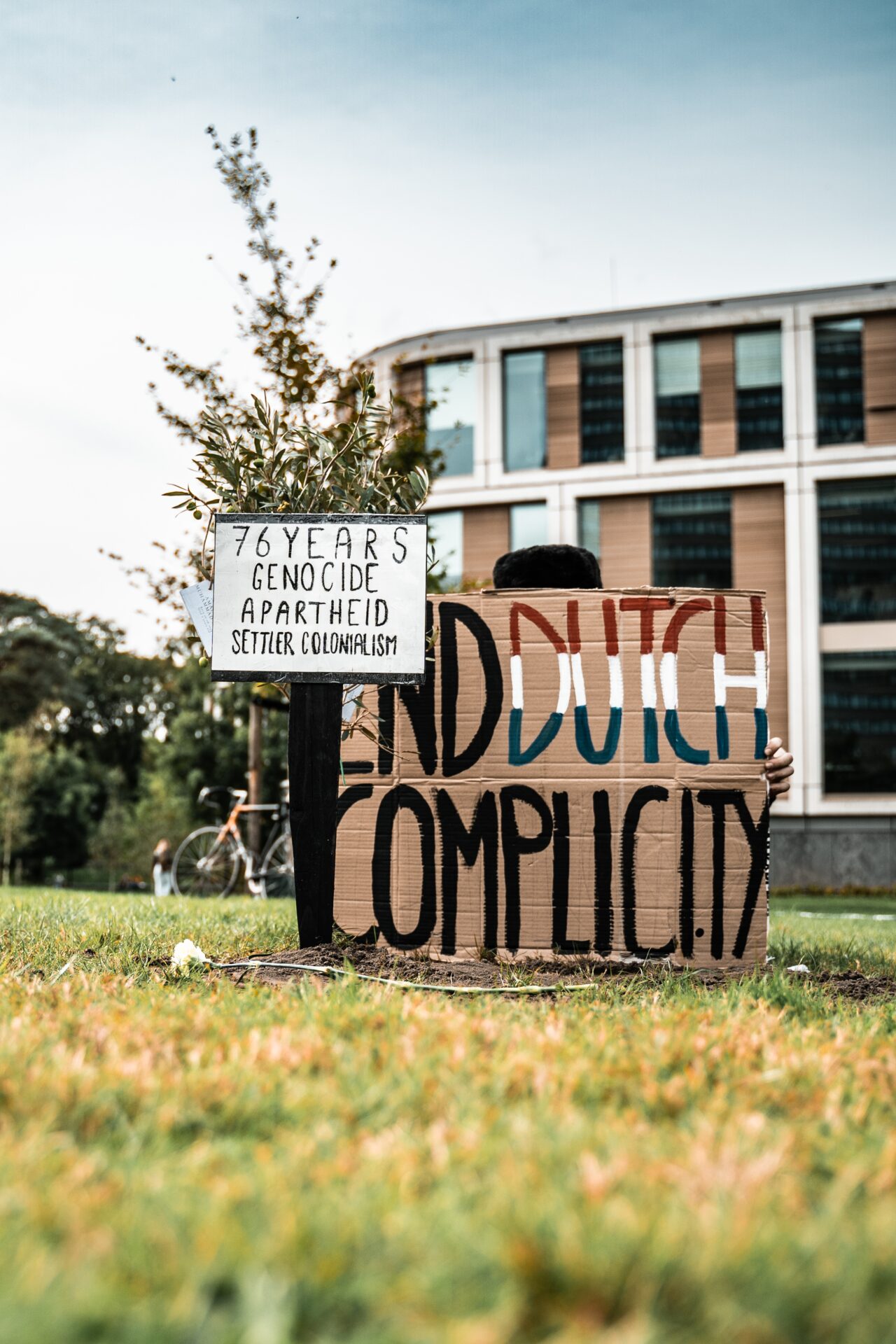University wants to curb demonstrations, participational bodies critical
-
 Pro-Palestine demonstrators plant an olive tree on campus. Photo: Johannes Fiebig
Pro-Palestine demonstrators plant an olive tree on campus. Photo: Johannes Fiebig
Radboud University wants to introduce a new plan to restrict future demonstrations on campus. The University Student Council is critical of the plan, while the Works Council is radically opposed to it. ‘This is a major violation of the right to demonstrate.’
Criteria for organising meetings and activities on campus. That is the name of the nine-page document that was to be discussed yesterday at the Joint Assembly of Radboud University.
We say ‘was supposed to’, because, at the last minute, it was decided to take the plan, which includes criteria for using University premises for high-risk meetings and for demonstrations on campus, off the agenda.
Implications
‘The overwhelming majority of the Joint Assembly members considers the criteria to be a gross violation of the right to demonstrate that belongs to every citizen,’ explains Max Visser of the Works Council. ‘This includes Radboud University students and staff.’
Olive tree
There was another pro-Palestine demonstration on campus this afternoon. Some 60 activists planted an olive tree on the lawn next to the Maria Montessori building and made a number of speeches.
The University Student Council (USC) is also critical of the plan. ‘The proposed scheme has many implications that, in our opinion, do not align with current practice and are therefore unnecessarily restrictive,’ says Sven Braster.
USC members also noticed that many of the proposed rules are already, or will soon be, included in the University’s internal regulations and codes of conduct, or in Dutch law. ‘We therefore do not find it necessary to lay these rules down separately in new, restrictive policies,’ Braster said.
Reporting to the Mayor
The document, which is public, reveals, among other things, Radboud University’s intentions regarding demonstrations on campus. For example, any future marches, demonstrations or silent processions have to comply with the conditions set for such activities by the municipality. This means that they have to be reported to the Mayor of Nijmegen 48 hours in advance.
Students or staff members who would like to organise a demonstration must request permission from the director of Radboud Services at least five working days in advance. If the timing matters, the procedure can be accelerated, but if the University has insufficient time to assess a request, it will be rejected. It should also be clear which organisation, department, or group wants to organise the meeting.
The Executive Board believes that demonstrations must not get in the way of teaching, research, impact and operations, and that the University should have the right to recover any damages and clean-up costs from the organisers. If not all protesters are students or employees of Radboud University, the organisers must report this to the University.
Car park
Last academic year, there were many demonstrations on campus, a few of which culminated in occupations and vandalism. The police had to intervene twice: first during the occupation of the Erasmus building, and a second time during the occupation of the Thomas Aquinas building. This led to the building being closed for a few days, and extra cleaners and a paint crew being hired to clean it up.
In response, Nijmegen Mayor Hubert Bruls ruled under the Public Demonstrations Act that pro-Palestinian demonstrations were temporarily only allowed in a car park next to the Elinor Ostrom building. At the time, members of the participational bodies already felt that this curtailment of the right to demonstrate on campus went much too far, and they have not yet changed their minds in this regard.
The odds are therefore slim that the above demonstration criteria will soon be introduced at Radboud University. At the next Joint Assembly, in early December, the criteria will be discussed in an amended form, along with the University’s internal regulations.




